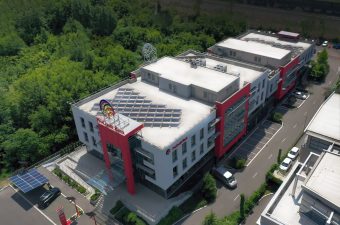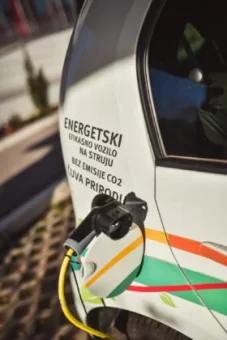
If we were not worried about the snow we had in April instead of December, perhaps we should be worried about the results of the index developed by the American University of Notre Dame. The index, which includes a range of indicators, shows that Serbia is the most vulnerable country in Europe regarding climate change and among the slowest in the fight against the world’s challenges today.
Global warming is one of the biggest problems facing modern society
The forecasts are unfavorable, so digital clocks have been installed in many countries in the middle of large city squares, which count down to the “eco-cataclysm”. Monitors with warning messages are unnecessary in Serbia because pollution is noticeable throughout the year, especially in Belgrade, which is also constantly shown by the air quality measurement index. This problem is serious but not unsolvable, but requires the engagement of all of us – the state and the private sector, but also individuals.
IN FOCUS:
- A DEPOSIT SYSTEM WOULD MOTIVATE PEOPLE TO RECYCLE
- GOOD POLICIES AND INNOVATIVE TECHNOLOGIES FOR A GREEN TRANSITION
- WITH CREATIVE IDEAS FOR GREENER SERBIA
What does the state do?
The Republic of Serbia has committed to reducing national greenhouse gas emissions by 33 per cent by 2030 compared to 1990. Priority areas are low-carbon transport, forestry, water management and agriculture, and the focus is on introducing energy-efficient and sustainable solutions. The private sector plays a major role in solving the problem, which, through its actions, greatly affects society and the environment in which it operates.
How should responsible companies behave?

Since the beginning of operations in Serbia in 2001, ProCredit Bank has been committed to respecting sustainable business principles. The bank was among the first to realize the powerful role of financial institutions in the fight for environmental protection and the importance of cooperation with companies and individuals who want to invest in sustainable projects. Thus, the bank, together with the company MT-KOMEX, financed the largest bifacial solar power plant in Serbia, DeLasol in Lapovo, which will be able to supply electricity to as many as 2,100 households. This large project, which is very important for the state, was preceded by two other important undertakings, financing the solar power plants in Kladovo, Solaris 1 and Solaris 2. Such investments prove that financial institutions and how can direct capital flows, thereby influencing the reduction of harmful emissions.
ProCredit Bank, in addition to financing large “green” projects, has excellent lending conditions for private households that want to install more technologically efficient solutions, with the possibility of returning up to 20 per cent of the investment. A house does not have to be demolished and built from scratch to be energy efficient. It is enough to do good insulation and replace the carpentry, and it would be ideal for installing solar panels on the roof or a heat pump.
The bank also owns an eco-vehicle fleet. All official vehicles are electric, and they have set up a network of over 40 free electric car chargers throughout Serbia.
Big changes start with small steps
Although it may seem that the effect of personal contribution to solving environmental problems is minor compared to the state or company results, it is still not insignificant. It is crucial to understand that each one of us has an impact on improving the environment. And how? It is simpler than it seems. Instead of a plastic bag, there are bags. Instead of single-use plastic, there is a cardboard or paper solution. The water bottle can be made of glass, the light bulb is economical, and the paper is made of recycled material. We don’t have to start the car every now and then. Sometimes we can walk or reach the destination by bicycle. ProCredit Bank tried to explain that people benefit from cycling as much as our environment, which gave away bicycles to its followers on social networks during the whole of last year – an action in which several dozen eco-two-wheelers were awarded.
Therefore, for snow to fall in December and not April, it is important to be part of the solution, not the problem. There are several solutions, and no more excuses like the famous “I can’t do anything”.
Source: ProCredit bank
Read the story in the new issue of the Energy portal Magazine ENVIRONMENTAL PROTECTION



